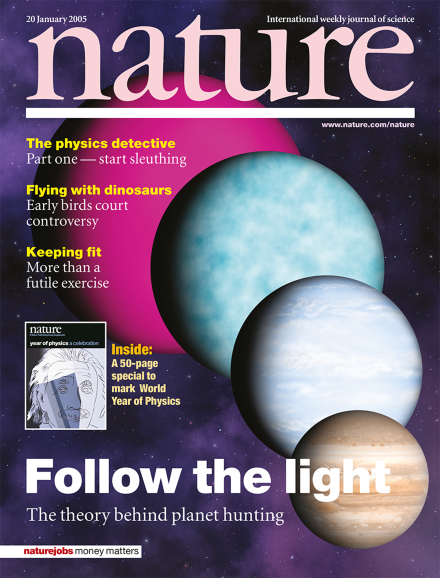Volume 433 Issue 7023, 20 January 2005
Editorial
News
News in Brief
News Feature
Correspondence
Books & Arts
Physics Detective
News & Views
Research Highlights
Brief Communication
Introduction
Commentary
-
1905 and all that
Special:
Essay
-
Einstein as icon
Special:
Concepts
Progress Article
-
Quantum criticality
Special:

